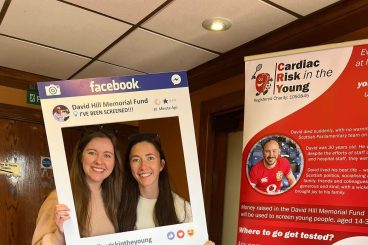The family of the unnamed youngster, who has since died by suicide, complained about their child’s treatment in the months prior to their death.
The young patient, referred to as A, was assessed by nurses from the Crisis Assessment and Treatment Service and Specialist Drug and Alcohol Service (SDAS). However, the parent complained that the risk to their life wasn’t properly assessed, and that the family weren’t appropriately involved.
In addition, it was claimed that staff failed to take follow-up action previously when A shared suicidal thoughts, and that there was no follow-up plan in place following discharge from a hospital admission.
The case was referred to the Scottish Public Services Ombudsman (SPSO) and they upheld the family’s complaint following an investigation.
Their findings were published this week.
The report said: “We took independent advice from a mental health nurse and a psychiatrist. We found that the assessment prior to A’s death did not explain how it was concluded that there was no immediate risk when A was exhibiting a number of risk factors. There was no evidence of these risk factors being effectively weighed against protective factors, and no evidence of hospital admission having been considered and ruled out.”
The SPSO revealed they also found ‘no evidence’ of A’s parent and sibling having been involved in the assessment, while the post-assessment care plan was deemed ‘not sufficiently robust’.
With regards a lack of follow-up on the earlier suicidal thoughts, the board told SPSO they could find no record of it been reported to them.
But the SPSO said: “We found that there was evidence in the GP record of the GP having contacted SDAS about this. We found that there was a failure to record or act upon this communication from the GP.
“It was noted that this may not have had a material impact on the eventual outcome, as A was later admitted for assessment and stabilisation, though, we found that there was an unreasonable delay in A receiving any follow-up following their discharge from this admission. The board had already acknowledged this and taken steps to address it.”
A lack of clarity surrounding the prescribing of some medication was further noted.
The SPSO continued: “The board also acknowledged a number of issues relating to communication with the family and a failure to involve them in care planning.
“We found that there was an overall failure to involve family members as partners in the care process. We, therefore, upheld all aspects of (the) complaint.”
A list recommendations has been made and the ombudsman asked the NHS to apologise for the identified shortcomings in the crisis assessment, and failures to involve and communicate with the family.
In future, they want approaches to risk assessment to be systematic and evidence-based, and clinical judgements effectively reasoned in clinical records; families’ views to be respected and for them to be involved in the care process; and more robust approaches to risk assessment, record-keeping and family participation.
The NHS will have to provide evidence that they have implemented these recommendations.
























